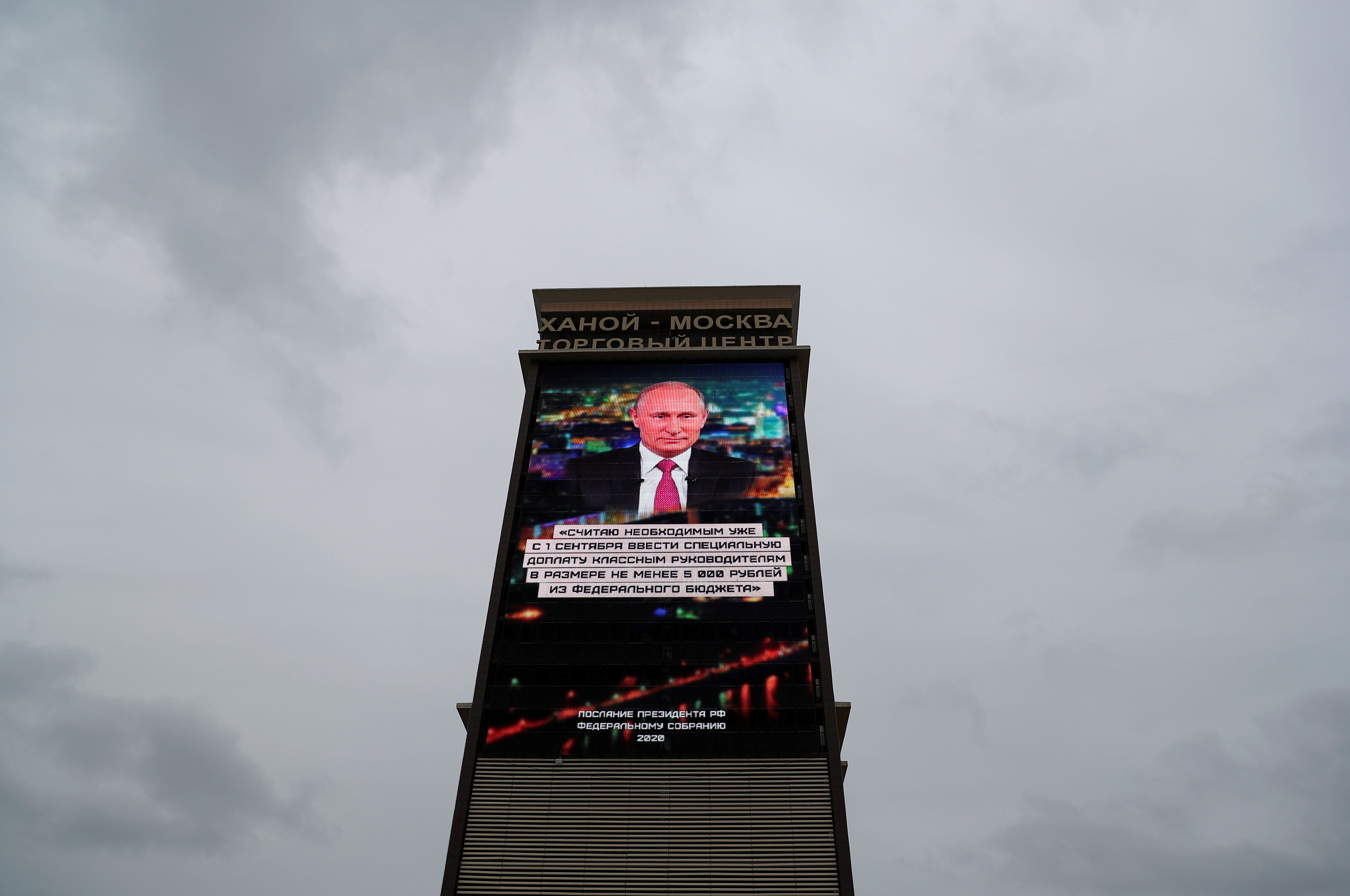January 16, 2020
Vladimir Putin has ruled Russia for twenty years, but he has a problem: his current presidential term ends in 2024, and the constitution prevents him from running for re-election then.
As a result, the question of what he'll do in 2024 has been on the minds of Russia's oligarchs, spooks, bureaucrats, and a lot of ordinary folks, as well. After all, over the past two decades, Putin has made himself, for better and for worse, the indispensable arbiter, boss, and glue of Russia's sprawling and corrupted system of government. As the current speaker of Russia's legislature once said, "Without Putin, there is no Russia." Not as we currently know it, no.
The last time Putin faced the constitutional limit of two consecutive presidential terms back in 2008, he simply installed his pal Dmitry Medvedev as president and worked "like a galley slave" for four years as Prime Minister, while keeping all the real power for himself. In 2012, he again became president – one of the things that sparked mass protests that year.
This time, he looks set to make a different plan. Earlier this week, he proposed a constitutional referendum that would bring big changes to Russia's political system by transferring powers from the presidency to the State Duma (Russia's legislature) and "firming up the status" of the State Council, which until now has been a Kremlin advisory body with a vaguely defined purpose.
These proposals immediately set off speculation: would Putin become Prime Minister after 2024 in a system where the Duma holds much more power? Or would he indicate a preferred presidential successor, clip that person's wings, and then head a beefed-up State Council as a kind of "father of the nation" figure, above the quotidian fray of politics?
For now, it's still impossible to know exactly what Putin will do. His style is to keep people off balance until the very last minute (he pulled Medvedev out of a hat almost on the eve of the 2008 presidential election.)
But looking ahead, here's what we can say:
Until 2024: Putin keeps his power and his options wide open to avoid whispers that he's become a lame duck. So long as Russia's power set is uncertain about what happens next, Putin has the initiative.
After 2024: So long as Putin lives, he likely holds onto power. Whether that power comes with an official post doesn't matter. Whatever position he occupies will in practice become the most powerful position in Russia, not because of any laws, but because Putin is the person who holds it.
After that: Putin's a hardy guy, especially for a 67-year-old, but he won't be around forever. What does Russia look like after Putin is truly gone? When systems are built so firmly around one person, the loss of that person creates a fundamental problem. Russia's not there yet, but one day it will be.
More For You
Prime Minister Narendra Modi, with President of the European Council António Luís Santos da Costa, and President of the European Commission Ursula von der Leyen, at Hyderabad House, in New Delhi, India, on Jan. 27, 2026.
DPR PMO/ANI Photo
On Tuesday, the world’s largest single market and the world’s most populous country cinched a deal that will slash or reduce tariffs on the vast majority of the products they trade.
Most Popular
Sponsored posts
Five forces that shaped 2025
What's Good Wednesdays
What’s Good Wednesdays™, January 28, 2026
Mexican President Claudia Sheinbaum Pardo stands alongside Canadian Prime Minister Mark Carney and US President Donald Trump during the 2026 World Cup draw at the John F. Kennedy Center for the Performing Arts in Washington, D.C., on December 5, 2025.
Deccio Serrano/NurPhoto
Canadian Prime Minister Mark Carney has repeatedly tussled with US President Donald Trump, whereas Mexican President Claudia Sheinbaum has tried to placate him. The discrepancy raises questions about the best way to approach the US leader.
Fighters of the Qassam Brigades, the armed wing of the Palestinian Islamist Hamas movement, attend a rally marking the 35th anniversary of the group's foundation in Gaza City on December 14, 2022.
Photo by Majdi Fathi/NurPhoto
10,000: The number of Hamas officers that the militant group reportedly wants to incorporate into the US-backed Palestinian administration for Gaza, in the form of a police force.
Walmart is investing $350 billion in US manufacturing. Over two-thirds of the products Walmart buys are made, grown, or assembled in America, like healthy dried fruit from The Ugly Co. The sustainable fruit is sourced directly from fourth-generation farmers in Farmersville, California, and delivered to your neighborhood Walmart shelves. Discover how Walmart's investment is supporting communities and fueling jobs across the nation.
© 2025 GZERO Media. All Rights Reserved | A Eurasia Group media company.
